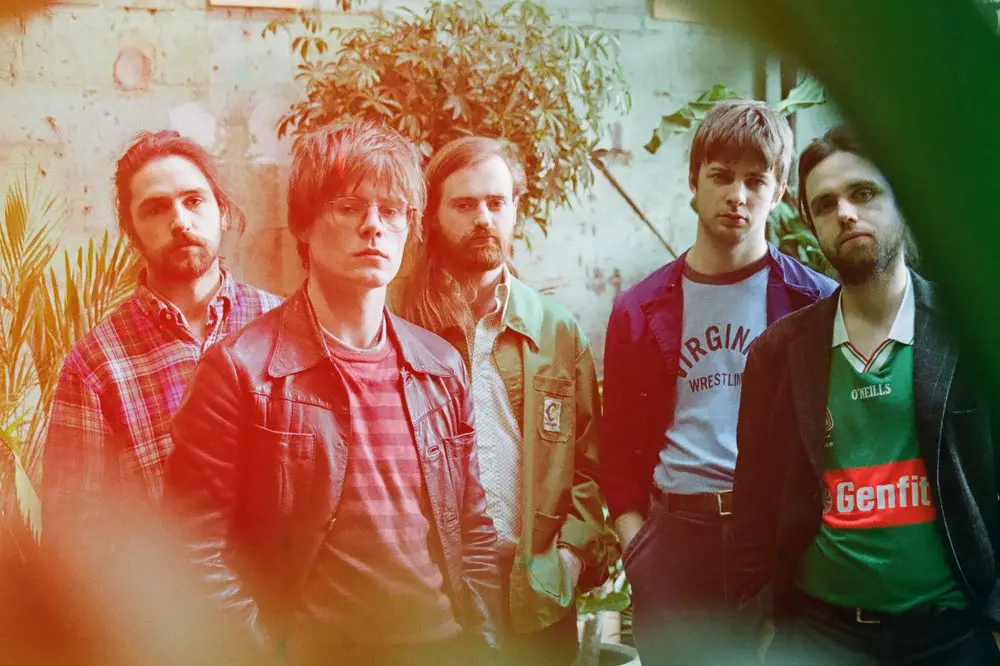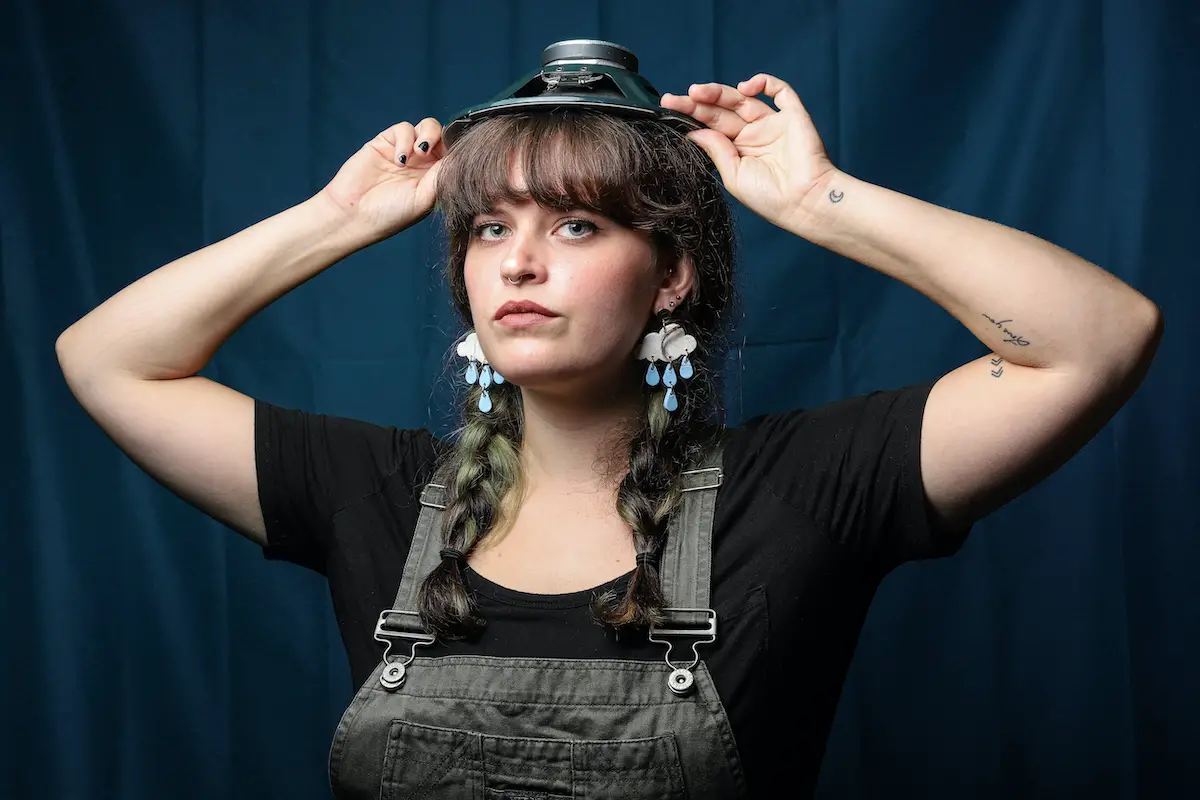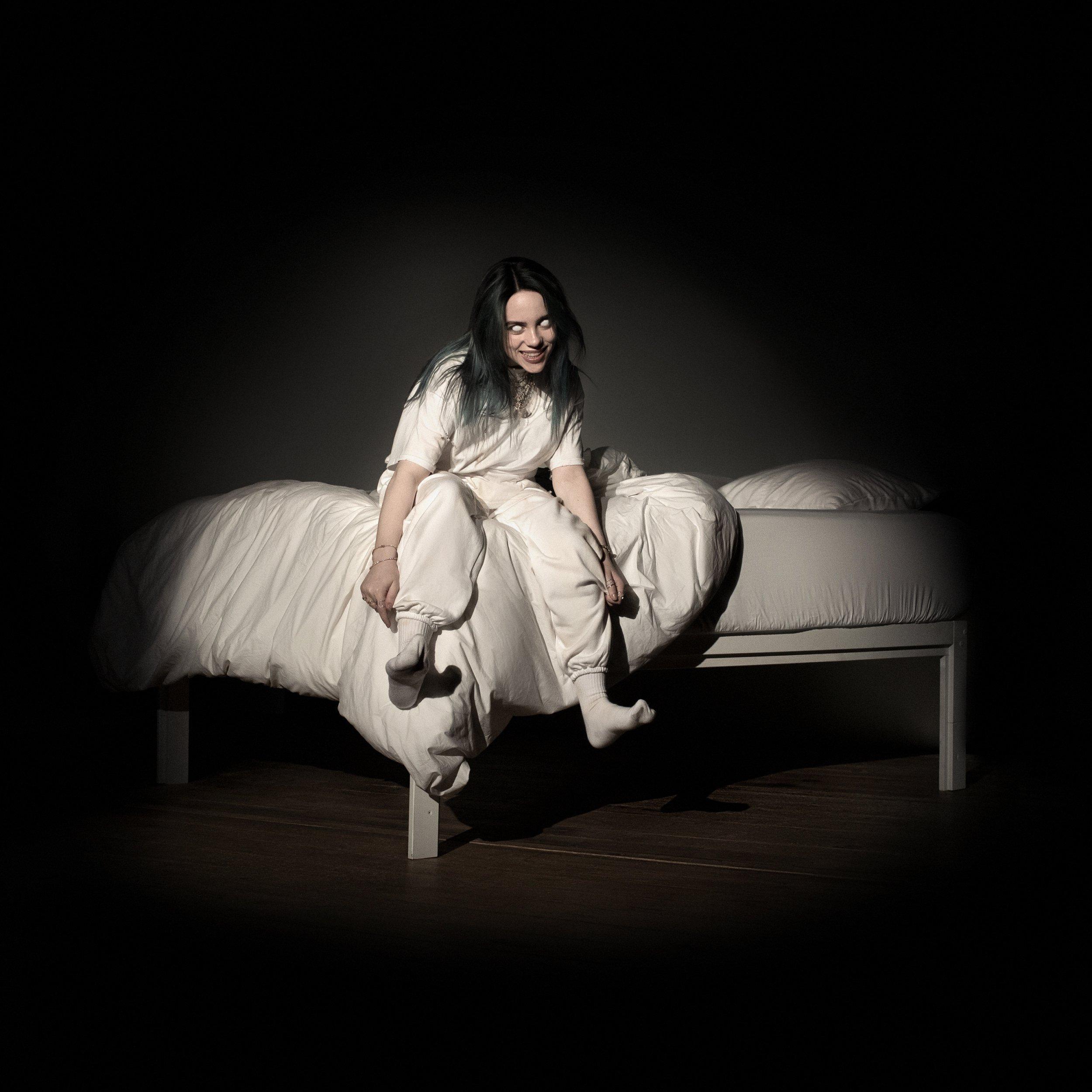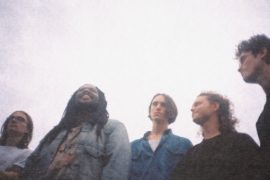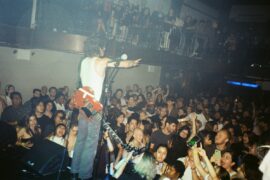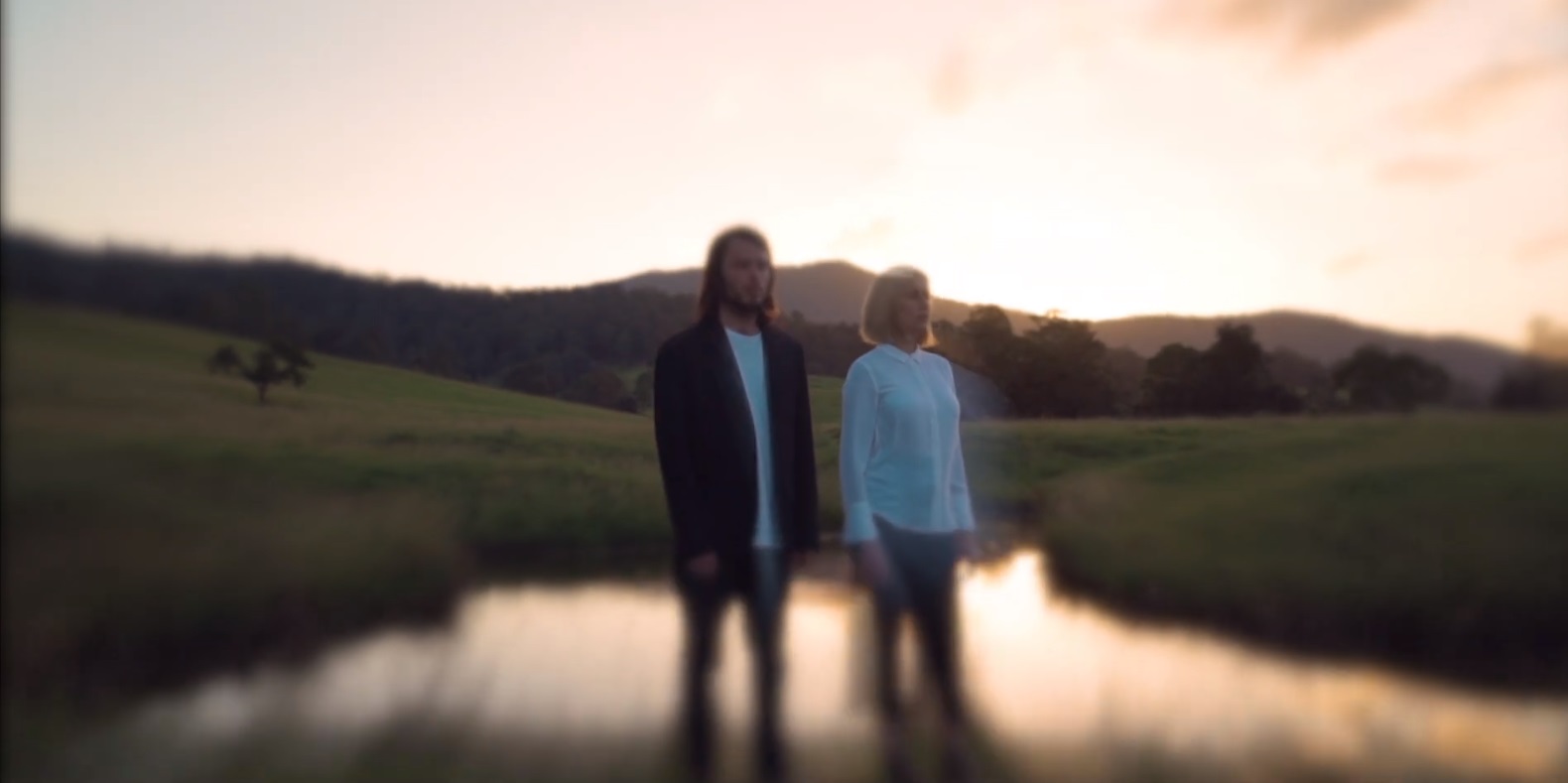The true beauty of Fontaines D.C.’s debut album ‘Dogrel’ is that it’s one of those once-in-a-generation moments where a band steps into the limelight and so perfectly encapsulates a time and a place.
Despite the ruffling of clothing and hands fumbling with a headphone wire, it’s clear that this phone call is taking place in a non-stop, lively city: Grian Chatten and the rest of the band Fontaines D.C. – Tom Coll, Conor Curley, Carlos O’Connell and Conor Deegan III – are running around London, completing sound check ahead of their first live TV performance on Soccer AM, along with all the other necessary tasks of a band about to drop their debut album. Breathless from just making his train, Chatten is just as eloquent and introspective as when he’s intensely barking musings about his beloved Ireland.
It feels very fitting talking about Dogrel – an album about a bustling Dublin stepping out of the long shadow of its history and embracing the future, out Friday April 12th – in a city that saw its music go through this same process decades earlier.
?Fontaines D.C. open the show with Too Real ? pic.twitter.com/lvJ8DGKKvx
— Soccer AM (@SoccerAM) March 30, 2019
But don’t mistake that punky scruff for an English influence. While not one to stick in any particular style long, Dogrel – and, by extension, Fontaines D.C. – is a constant sonic leap into the unknown: It’s The Clash, The Smiths, The Rolling Stones, Joy Division, and a million other sounds all rolled into one. “Our music is a product of our obsessive sharing as friends. We’re friends who have loved watching each other grow over the years, and we’ve helped each other do that by introducing each other to these influences—that can be books, poetry or whatever,” Chatten explains. “Musically there’s an awful lot of influence from the Rolling Stones, but also from literature and poems.”
The forerunning colour in Fontaines D.C.’s sonic palette is Girl Band. The little-known post-punk Irish band’s touch is all over this record, from the swirling other-world-sounding guitars on “Too Real” to the pounding drums on “Liberty Belle“: “Girl Band are one of the leading influence on us, particularly in our reconceptualization of Dublin and of Ireland.” (The DC in the band name? Yup, it stands for Dublin City.)
Hearing Chatten and co. weave together such disparate inspirations is not a jarring experience, however. It’s an exciting trip, with each track making the listener explore Fontaines D.C.’s beloved, greasy-grimy Dublin in a new way. “I think the main thing that brings the record together and makes it work are Dan Carey’s production and the fact that all the songs come from an honest place. There’s only one character – my personality is all over the album as a lyricist and a vocalist. I think those two things are what tie the whole thing together,” Chatten offers of the band’s otherworldly, youth-stained take on punk.
There’s a lot of variety, because we wanted to express different sounds on this album. I think a lot of bands are terrified of variety because they feel if they can shave their sound down into one fine point, one particular sound and emotion, it’ll make it more easily digestible. They’re afraid of having too big an emotional scope. I’m very proud that we avoided that.
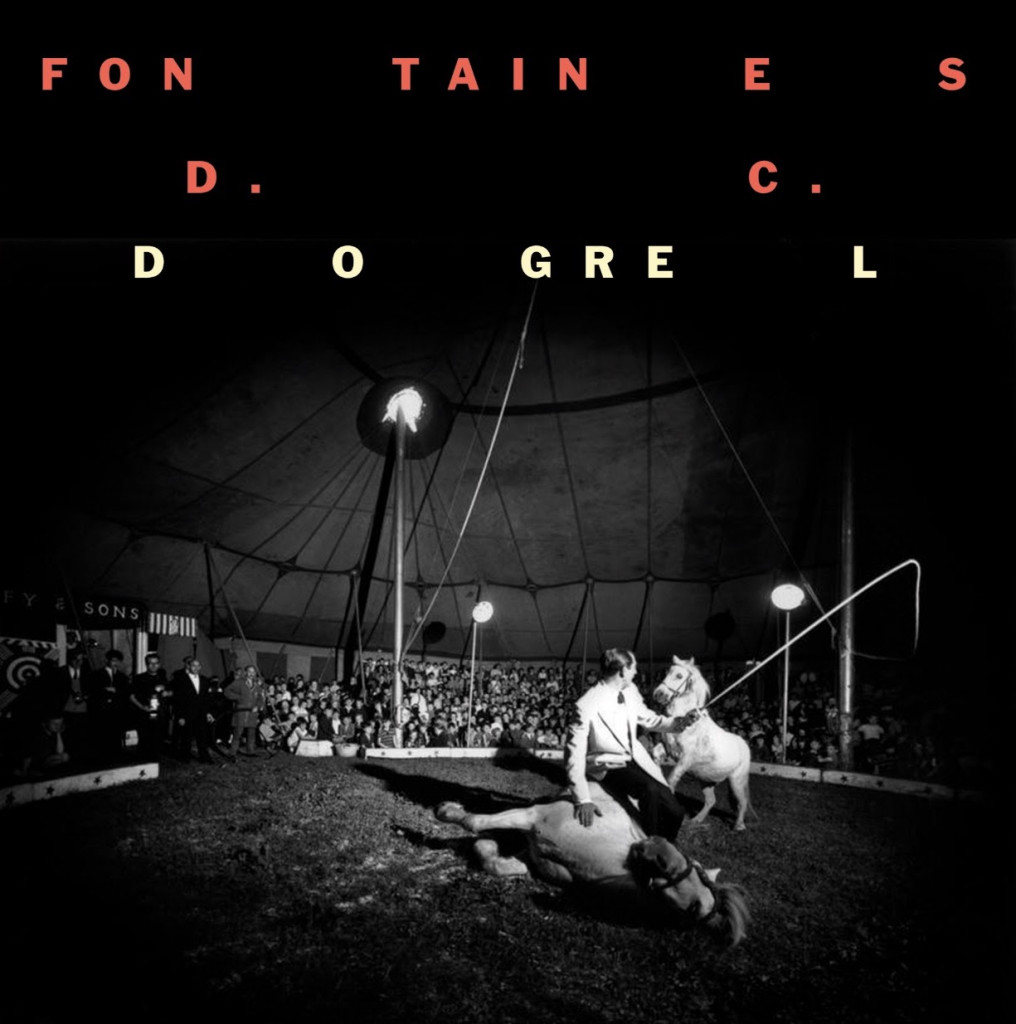
And this is the true beauty of Dogrel: It’s one of those once-in-a-generation moments where a band steps into the limelight and encapsulates a time and a place so perfectly. These records take the listener through the speakers and into a city they thought they knew — personally or culturally — and shows them a side of it they’d never dream existed. Look no further than The Strokes’ Is This It or Oasis’ What’s The Story Morning Glory? as examples of classic, musical tour guides: The grimy sound, the spat-singing attitude, and the intriguing self-reflection take us right to the heart of New York in the early 2000s. and lets us breath the smog and chavvy cologne of 1995’s Manchester.
For Dogrel, drums as relentless as Dublin’s rain and lyrics steeped in poetic influence show you’re hearing a cultural revolution’s key tracks with a definite sense of place.
Speaking to Chatten, Dublin seems like the obvious choice to be next for this treatment. The Irish capital has spent the last few decades culturally hamstrung, unable to move on from the music that most people think of when they hear Ireland: “In the ‘80s, the Pogues were Ireland’s last attempt to rescue the past; they changed it a little bit, but it’s still essentially traditional music. It’s all traditional melodies and the lyrics are based off traditional music. Then it just moved on and turned into U2,” Chatten says, the line cutting just a second before he continues: “The Pogues were a modern take on traditional Irish music with different production and different drums and a gritty singer, then it went out of fashion for a while. Irishness as a whole did.”
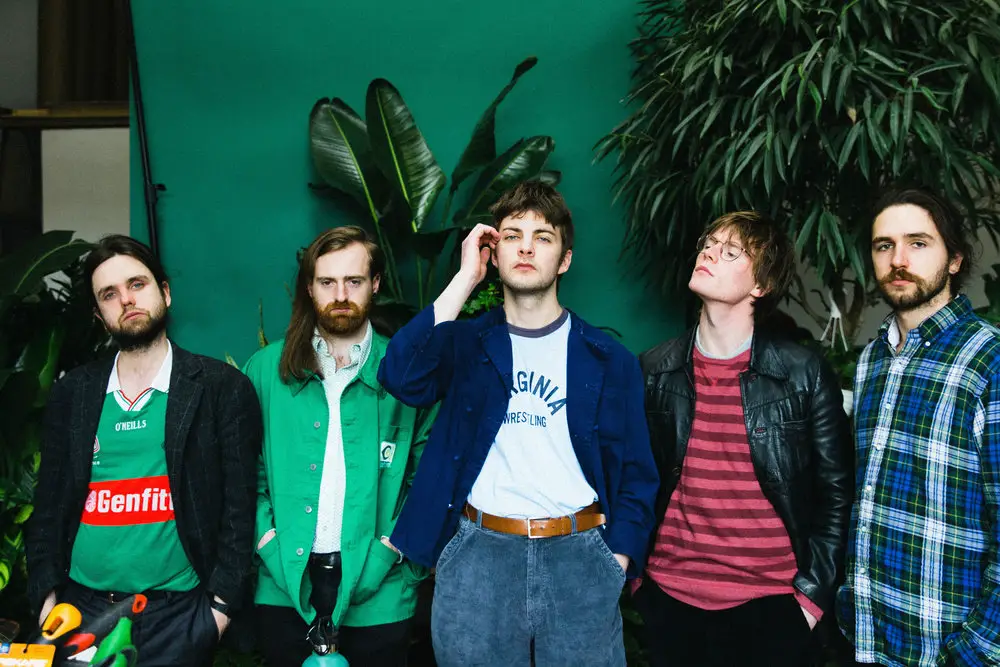
So what’s changed to bring on this 21st Century renaissance? While he’s unable to trace the origins – Chatten vaguely points to the introduction of tech giants to the country, or the economic hardship post-2008 – he’s very sure of its impact: “Creatively, Ireland is a country that is discovering modernity. It’s been torn between latching onto the past – the incredible rich culture of the past – because as we let go we replace it with materialism, which is a cultureless pursuit.”
He pauses, deliberately choosing his next words to truly hammer home the crossroads at which his nation stands.
“Ireland is finding a way to blend its past with the present, in a way that has a new sense of ownership for the youth. It is now having to look back on its past and let it mingle with its present in a very healthy and self-accepting way. It’s learning from its past and it’s accepting it for all of its flaws. Irishness is coming back in general, and there’s a sense of pride in our past.”
Dogrel brings back this pride in a big way; loud, brash, and unapologetic.
The Pogues, The Dubliners, and U2 are replaced by a distortion-laden, eclectic approach wherein every song is a snapshot of 2019 Dublin. Chatten’s strong Irish brogue and beautiful poetry fighting for space next to the chaotic guitars perfectly mirrors the daily scenes of rushing trains, buses, and people in the centuries-old, romantic-style Dublin streets.
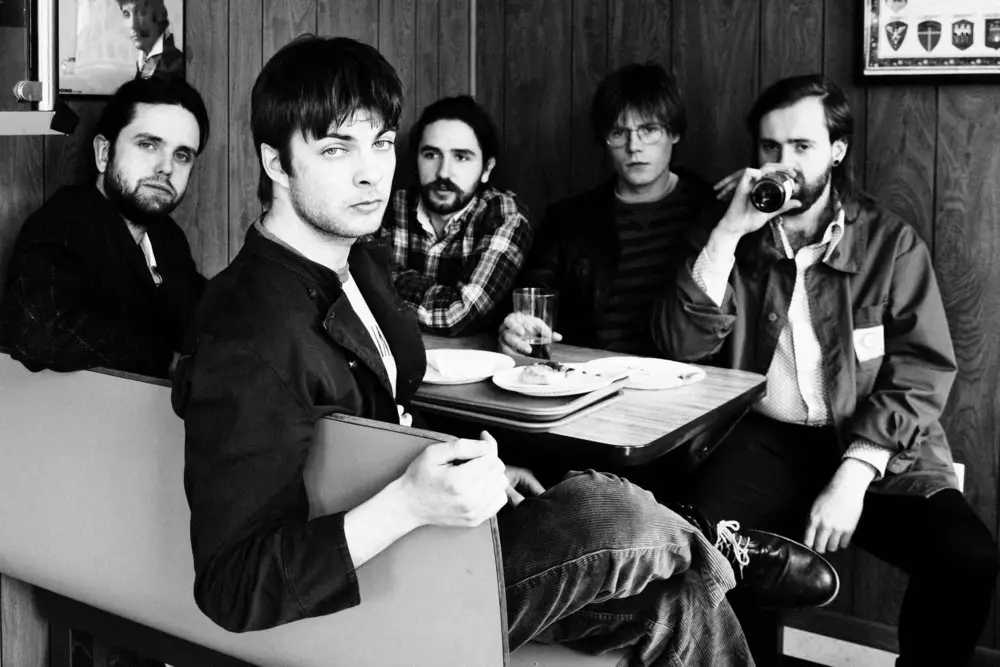
It’s poetic in the truest sense of the word: The original plan was to release a collaborative poetry book. You could argue Fontaines D.C. did this, just with screaming guitars in the background. “Basically I don’t see the distinction between lyrics and poems till I try it in a song and if it works, I call it lyrics” he says with a chuckle, before continuing: “I enjoy walking the line between what works as a poem and what doesn’t fit completely into music; I find that a really interesting and worthwhile pursuit.”
The result sounds just like angry Beatniks, with Ginsberg-esque repetition and Kerouac-style colour. Want proof? Look no further than “Liberty Belle”: The building tension, the story of mundane life gone astray, sounds like poetry in motion.
You know I love that violence
That you get around here
That kind of ready-steady violence
That violent ‘how do you do’
And the lie when Daddy
was asleep in a phone booth
He’s just very very tired of having
That same old boring conversation
Just like me. Just like you
Man is on the nod
yeah, what you gonna do about it?
Lyrics like this should be so specific to one place, making it an album for Dubliners only. But it doesn’t; there’s a universality to Dogrel. Chatten naturally answers this with a reference to an Irish literary giant: “[James] Joyce says ‘within the particular is contained the universal’. The way to achieve that is if the particular involved is written about with respect and honesty, then I think anyone can relate that to the place they’re from. Through this honesty you view things you might not necessarily think about, things that are mundane and things that are tough. These are universal themes.”
However, this love of poetry started with a simple parental bribe: “I was introduced to Robert Louis Stevenson when I was ten years old by my dad. I wanted to be a footballer when I was a kid, so I used to collect these football stickers so I could finish the book. My dad told me he’d buy me a pack of stickers if I learned one of the poems so I learned about ten poems and he had to buy me ten packs of stickers,”Chatten remembers.
How does a soccer book at age ten become a punk-poetry record at twenty-three? By sitting around a table with a beer, a notepad, and talking to your best friends about your feelings.
“We feel things together because we hang out all the time, so there’s usually one dominant feeling that we can all share. So we sit down and discuss it” Chatten says. “We explain it to each other and we use very honest language to explain the collective feeling we have. Then when we know what the feeling is we try to capture that with music. I have lyrics already done for this because that’s how I cope with all these feelings in the first place.” This approach not only explains the eclectic sound, but also how that sound can completely capture the songs’ sentiment before a word is uttered.
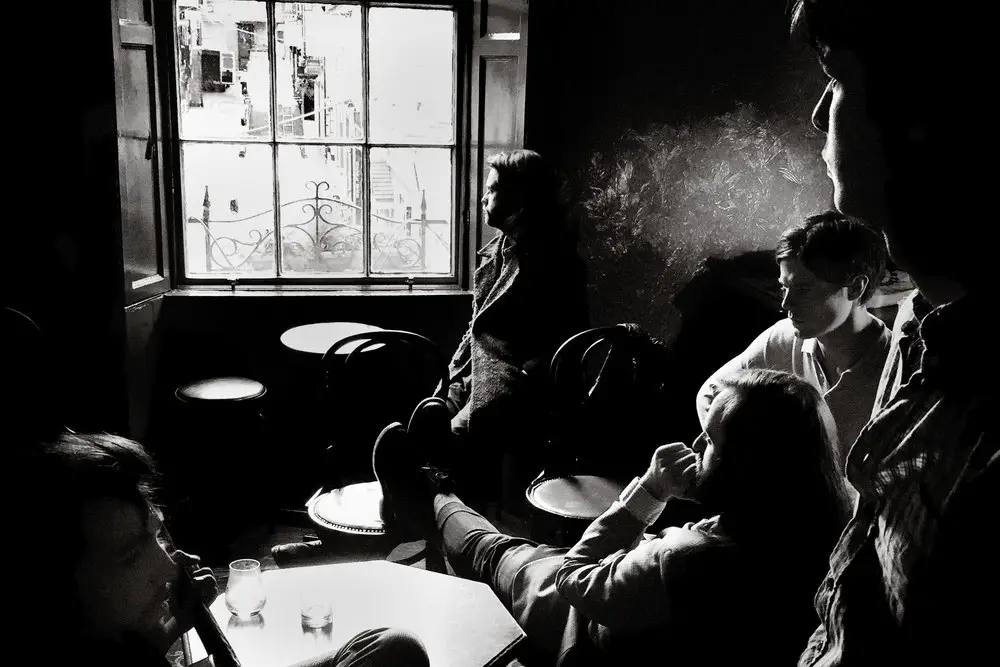
As for the sense of constant tension: “We wanted to record the whole thing live because we wanted to capture the intensity of our live shows. We did it to tape, so we recorded four tunes in a row onto one piece of tape. If we messed up on the third or fourth song then we’d have to go back to the start and do them all again so there was nice sense of anxiety in the room. A bit of fear as well,” Chatten laughs at the memory of catching one of his bandmates eyes, knowing they’d just been condemned to repeat the process all over again. “There was no partitions in the room, so all of us were actually in the same room looking at each other, recording the whole thing. There was a lot of cigarette breaks.”
One unexpected benefit of this process however, was the increased tempo of album standout “Boys In The Better Land.” “We just played it so many times that we had to play it faster just to get that hit, that fix of adrenaline that that song originally gave us.” A track about “the general concept of marketing and how it is used to sell cultures to each other,” it’s greatest moment is the use of Coke-Cola’s own mission statement – “To refresh the world in mind, body and spirit” – to hammer home its poetic point:
Driver’s got names to fill two double barrels
He spits out “Brits out.” Only smoke carrolls
Now we’re refreshing the world
in mind body and spirit
Mind body and spirit
You better hear it and fear it
Oh that’s the spirit
It’s a moment that truly captures what Fontaines are attempting to do; they want to reimagine their surroundings and force you to think about your own in the process. All the while, they’re blowing you away with quick beats and manic lyricism.
This bears out in “Chequeless Reckless,” with Chatten’s spat manifesto being delivered over a repetitive, distorted guitar that continues as the backbone of the whole song.
A sell-out is someone who becomes a hypocrite in the name of money
An idiot is someone who lets their education do all of their thinking
A phony is someone who demands respect for the principles they effect
A dilettante is someone who can’t tell the difference between fashion and style
And money is the sandpit of the soul
Ireland is at an interesting cultural crossroads, and Fontaines D.C.’s Dogrel stands as a signpost at this junction.
It simultaneously can’t be separated from the country and yet is a brave step into the future. Fontaines D.C. sounds like modern-day Dublin because it combines the nation’s rich history of poetry – few can boast a trio as strong as W.B.Yeats, Oscar Wilde and James Joyce – with the grimy, bustling city grind of 2019, creating a musical polaroid of a city looking for it’s identity. However, it’s never precious about the city it loves: “It’s both essentially good and essentially bad at the same time, both beautiful and hideous. The reconciliation – or even that lack of reconciliation – between those two aspects of the city is so interesting together that one just has to write about it.”
Dogrel is out Friday, April 12 via Partison Records!
— —
:: stream/purchase Dogrel here ::
— — — —
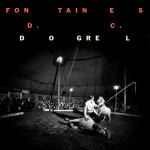
Connect to Fontaines D.C. on
Facebook, Twitter, Instagram
Discover new music on Atwood Magazine
? © 2019

